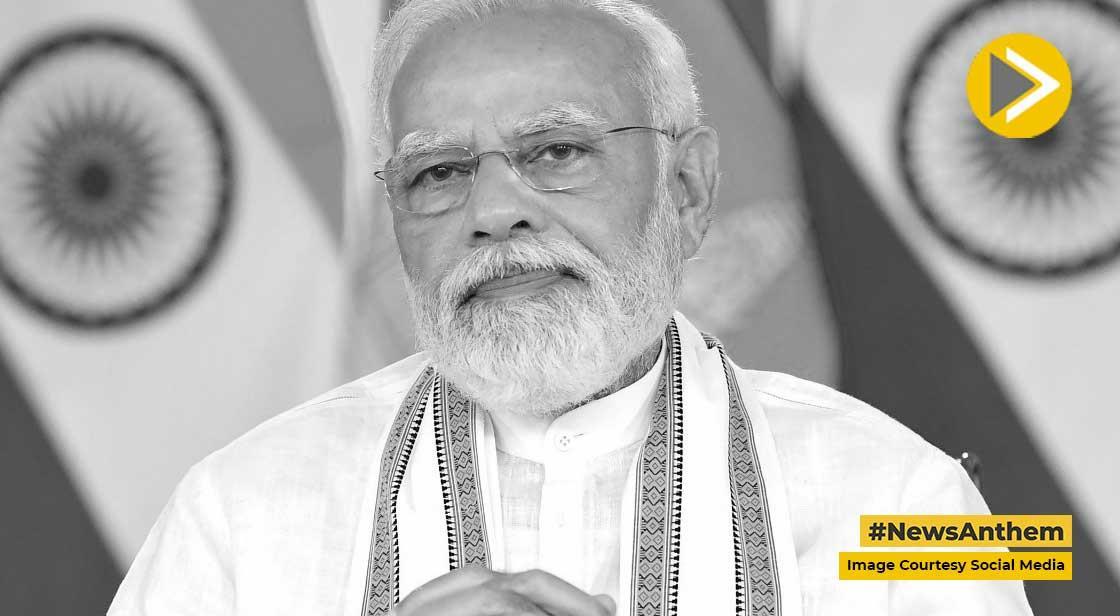FM Presents a Clear Economic Picture and Reform Roadmap, Says PM Modi

News Synopsis
Union Finance Minister Nirmala Sitharaman, during her response to the debate on the Union Budget 2025-26 in Parliament, presented a transparent and detailed overview of India’s economic trajectory and the government's ongoing reforms. Prime Minister Narendra Modi, acknowledging her address, emphasized the clarity and direction provided by her statements.
“During her remarks in Parliament, Finance Minister @nsitharaman has given a very clear picture of the Indian economy and the reform trajectory we are undertaking,” PM Modi stated on social media platform X.
India Poised to Maintain Fastest-Growing Economy Status
During the Budget debate in the Lok Sabha, Union Finance Minister Nirmala Sitharaman reaffirmed that India will continue to be the fastest-growing major economy. She credited this projection to higher government capital expenditure (capex) and increasing rural consumption.
-
The effective capital expenditure for the 2025-26 Budget is estimated at 4.3% of GDP.
-
The fiscal deficit target is set at 4.4%, showcasing the government's commitment to fiscal consolidation.
-
The capital expenditure allocation has increased to ₹1.21 lakh crore, countering claims of budgetary cuts.
Sitharaman stressed that despite global economic volatility, India remains on a strong growth path, leveraging its robust domestic consumption and investment-driven economy.
Inflation Control Remains a Government Priority
Addressing concerns about inflation, Sitharaman reassured that inflation management continues to be a top priority for the government.
-
Retail inflation remains within the RBI's tolerance range of 2% to 6%, providing stability to consumers and businesses.
-
The government has been implementing various policy measures to ensure price stability while supporting economic growth.
Global Economic Fragmentation and Its Impact on India
While speaking in the Rajya Sabha, Sitharaman highlighted global economic challenges impacting India’s budgetary decisions.
“For decades, we have discussed globalization, but now we are witnessing growing fragmentation. Everyone wants free markets, yet tariff barriers are increasing. The world is undergoing significant change,” she stated.
She pointed out that rising tariff barriers and shifting trade policies are making economic forecasting more complex.
"Despite this, we have aimed for the most accurate assessments, prioritizing India’s interests. The prevailing uncertainty also affects critical imports essential for India’s economic growth,” she added.
No Reduction in Sectoral Allocations
Sitharaman dismissed concerns about sectoral budget cuts, stating that the government has maintained strong capital expenditure commitments to drive growth.
-
The effective capital expenditure for FY 2025-26 is projected at ₹19.08 lakh crore, ensuring continued investment in key sectors.
-
The Budget is designed to fuel economic expansion while maintaining fiscal prudence.
New Income Tax Bill 2025 Introduced
In a significant move towards tax reforms, Sitharaman also introduced the new Income Tax Bill, 2025, in the Lok Sabha this week. The bill aims to:
✅ Simplify tax provisions, making compliance easier for individuals and businesses.
✅ Reduce legal disputes, ensuring a fairer and more transparent taxation system.
This initiative aligns with the government's long-term objective of creating a business-friendly environment and enhancing ease of doing business in India.
Conclusion
The Union Budget 2025-26 presents a comprehensive roadmap for India’s economic growth, reinforcing the country’s position as the world's fastest-growing economy. Finance Minister Nirmala Sitharaman outlined key fiscal policies, including a strong capital expenditure push and fiscal deficit management, ensuring sustained development.
The government’s commitment to inflation control, strategic spending, and economic reforms highlights its focus on long-term stability and inclusive growth.
Despite global economic uncertainties and rising tariff barriers, India remains resilient, adapting to dynamic financial challenges. The introduction of the Income Tax Bill, 2025, further reflects efforts to simplify taxation and reduce legal disputes. With effective planning and policy implementation, the government aims to drive investment, infrastructure growth, and economic expansion.
As India continues its reform trajectory, the Budget lays a solid foundation for financial stability and progress. Strategic economic policies and responsible governance will be crucial in maintaining momentum and achieving sustained development.
You May Like









